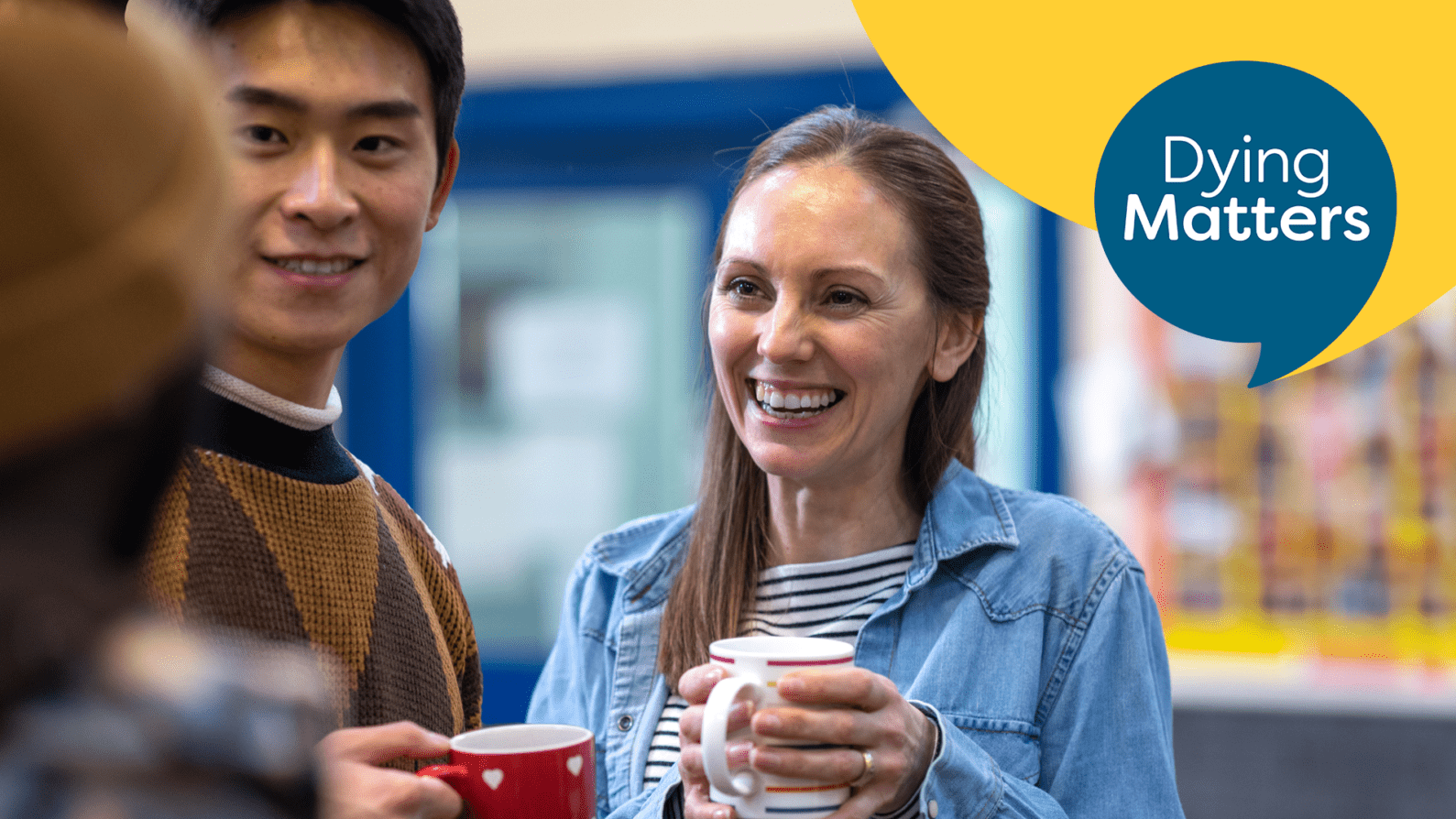
Dying Matters Awareness Week starts on 6 May 2024. This year’s theme is ‘The way we talk about Dying Matters’ and focuses on the language that we use, and conversations we have, around death and dying.1
Here in the United Kingdom, we are still some way from normalising discussions around death. Such discussions are often thought of as taboo or simply too upsetting. Death and grief is often kept behind closed doors and many of us lack direct exposure to the dying process which can potentially have all sorts of emotional and spiritual consequences for how we grieve our loved ones, as well as how we prepare for our own deaths.
One of the barriers to these important conversations is struggling to find the right words. We each have our own preferences and what’s important is having clear, open and honest conversations – as long as everyone is confident what the words mean to you, then it is fine to use them! Some people prefer to use direct language about death and dying, whereas others prefer euphemistic language such as ‘passed away’, ‘didn’t make it’ and ‘lost’. However, when explaining death to children it is always best to use direct language. Phrases such as ‘gone to sleep’ or ‘passed away’ or words such as ‘gone’ or ‘lost’ may feel gentler but are misleading and can lead to confusion and anxiety for children.
Interestingly, according to a recent Dying Matters survey of 1,000 recently bereaved adults 45% of people prefer direct language such as ‘dying’ and ‘die’ when talking about death and dying, whilst 33% prefer euphemistic language such as ‘passed away’, ‘not going to make it’, ‘we can’t do any more’) Older people (+55) tended to prefer using more direct language to talk about terminal diagnoses and dying, while younger people (16-24) had a preference for euphemistic language. The survey also revealed that the Covid-19 pandemic has changed how some people prefer to talk about death and dying.
Across Whitehead Monckton’s social media we will be carrying out our own polls on the language of dying during Dying Matters Awareness Week. It will be interesting to see what language our clients and contacts prefer.
There are encouraging signs that talking about dying is becoming more acceptable and more people are making Wills and Lasting Powers of Attorney to plan for incapacity and death. In 2023, Lasting Power of Attorney registrations surpassed a million for the first time! However, for many it is still an uncomfortable topic and too many people are continuing to avoid facing up to their own mortality or potentially upsetting loved ones and are not putting plans in place. Acclaimed author, speaker and former palliative care physician Dr Kathryn Mannix, says: “I’ve met so many bereaved people who wish they had talked about dying more. I’ve never met a person who regretted having those important conversations. We need to talk about it, because talking about death will help us to live together better.” 2
Whilst helping you put in place the relevant legal documentation, such as Wills and Lasting Powers of Attorney, we can help encourage and facilitate those difficult discussions around death with the whole family. We understand the fear people feel but can help you explore what a good death looks like for you and help those wishes be fulfilled. For many people a good death means being with family and friends, being cared for and able to die in the place of their choice and being involved in decisions about their care, or if they are not able to for family and friends to be involved. We can talk about all sorts of things such as:
Do not worry about getting upset during discussions with your lawyer at Whitehead Monckton – we always have tissues to hand and are happy to make you a comforting cuppa!
Here at Whitehead Monckton we believe that talking about death and dying does not have to be an unpleasant conversation. Having open conversations about death and dying allows us to consider how we feel about different options for end of life care, how we would prefer to live our final days, and how we want our lives to be celebrated and remembered.
Article written by Bekka Fuszard TEP, Associate Solicitor, Tax and Estate Planning Department April 2024
For more information and advice on this topic, please visit: https://www.hospiceuk.org/
1 https://www.hospiceuk.org/our-campaigns/dying-matters/dying-matters-awareness-week
2 See the short animation by Emily Downe, and voiced by Dr Kathryn Mannix which guides you gently on a step by step journey through the process of dying: https://www.hospiceuk.org/latest-from-hospice-uk/what-happens-when-someone-dying